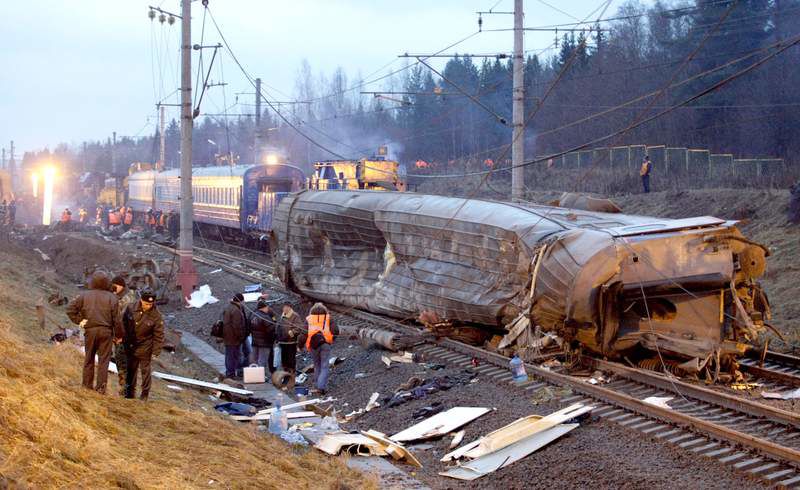Russian train wreck tied to terrorist bomb
Published 4:00 am Sunday, November 29, 2009

- A powerful homemade bomb sent this high-speed Moscow-to-St. Petersburg train careening off its tracks, Russian officials said Saturday, killing at least 26 people in what officials consider an act of terrorism. As many as 100 people were left injured by the disaster, officials said.
MOSCOW —The cause of the crash of one of Russia’s most illustrious trains was identified on Saturday as a homemade bomb that went off on the tracks between Moscow and St. Petersburg, killing more than 25 people, wounding scores of others and raising fears of a new era of terrorism here.
Officials called the explosion on Friday the worst terrorist attack in Russia in years, outside volatile Muslim parts of the North Caucasus region, including Chechnya. There were no immediate credible claims of responsibility.
Trending
The force of the crash crumpled parts of the luxury train, propelling several of its 14 cars off the tracks, trapping passengers in smashed compartments and scattering luggage in the nearby woods. People on the train described a scene of panic and devastation in a rural area that was difficult for rescuers to reach.
At the attack site, 200 miles northwest of Moscow, investigators reported Saturday that they had found remnants of a homemade bomb, equivalent to 15 pounds of TNT, that left a crater 5 feet deep. The bomb was apparently planted on the tracks and detonated while the second half of the train was passing.
In nationally televised remarks, President Dmitry Medvedev called for calm. “We need there to be no chaos, because the situation is tense as it is,” he said.
Trains as targets
The train, the Nevsky Express, is a preferred means of travel for the Russian elite between the country’s two most important cities. Among the dead were a former senator and a senior official in the Economics Ministry.
The train was carrying more than 650 passengers and 20 railway personnel during its regular run to St. Petersburg, which takes 4 1/2 hours.
Trending
Russia’s Soviet-era infrastructure, which has often not been well maintained in recent years, has also caused deadly rail catastrophes. In addition, negligence and misconduct, sometimes caused by alcohol, have been factor in accidents.
For Russians, the attack on Friday night may have been reminiscent of terrorist acts that stirred unease across the country earlier in the decade, when Muslim separatists from Chechnya made passenger trains, subways and other public places targets.
In interviews at railway stations Saturday night, some travelers expressed concern about future attacks, while others shrugged off possible danger.
“Am I scared of traveling to St. Petersburg tonight? Yes, very much!” said one middle-aged woman.








